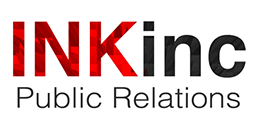As a Public Relations professional I’ve made the media, and in particular, traditional news media, the focus of my life’s work. I built my company, INK Inc PR on a simple premise which was to deliver truthful, interesting, newsworthy stories to the media that are driven by information and not puffery or ads. With that recipe, solid press coverage will usually follow. The traditional press, namely broadcast and newspapers, have been my partner in this endeavor. So anytime I see stories about changes in this partnership, based not on journalism but rather politics or the bottom line, I take notice.
One such example is Alden Global Capital which now owns more than 200 newspapers, both big and small, throughout the United States. This very secretive hedge fund recently announced a new editorial policy that their papers will no longer endorse political candidates in their opinion pages.
This could be seen as an editorial decision to remain neutral on issues of politics. Obviously very strange for a newspaper but something that could be at least explained. But Alden Global Capital is a little different. These are the folks buying up local newspapers, which are often struggling, and then significantly cutting staffs to increase profits. The obvious result is that local news coverage takes a big hit. Yes, they have some big metropolitan papers in their bag including the Denver Post and, with last year’s acquisition of Tribune Publishing, the Baltimore Sun, the New York Daily News and the influential daily Chicago Tribune. But by and large, Alden has built its growing portfolio on small regional press outlets where the sole concern is the bottom line in lieu of serving readers. To date, it appears their goal is to slash already stretched newsrooms, wring as much profit out of a paper as possible and then let it go belly-up. So their decision to eliminate any kind of political endorsement clearly speaks to their methods. They’re seeking to appease advertisers while not giving their readers the benefit of a considered and reasoned opinion, whether left, right or in between.
Alden claims their new policy is because the “public discourse has become increasingly acrimonious.” It almost sounds like a reasoned stance. But they also said that “with misinformation on the rise, readers are often confused, especially online, about the differences between news stories, opinion pieces and editorials.”
So a hedge fund, that few know anything about, has decided that the best way to combat misinformation is to gut newsrooms where the goal is to always work from a place of fact and push back against misinformation. Newspapers, even those exclusively online, are the last bastion where real news is clearly separated from the opinion pieces and advertorials. And where those exist it’s made clear to readers so they’re aware. It’s the responsibility of a good newspaper, and something they take seriously, to delineate such differences and to have the news side report facts and credible information from reliable sources.
And when an election cycle comes around it’s also part of their efforts to have their editorial board and management present its case to its readers in the form of an endorsement. An endorsement culled from day-to-day reporting on the important issues from both a local, state and national perspective. Do newspaper endorsements influence readers? Perhaps. But it will do so clearly as its purpose. Eliminating such a delineation only leaves suspicion that opinion may be buried in the news reporting itself and the fear of “fake news” has an opportunity to raise its ugly head.
Hard news, driven by fact-based reporting, along with opinion articles as well as thoughtful political endorsements, can and should coexist in a local or regional newspaper. This is a practice that’s been going on since colonial times without fear of offending or losing advertisers or even readers. Our nation is stronger because of it. So perhaps Alden Global Capital isn’t as interested in curtailing misinformation as they are encouraging it. Because, as the venerable Washington Post slogan reads, “Democracy Dies in Darkness.”
